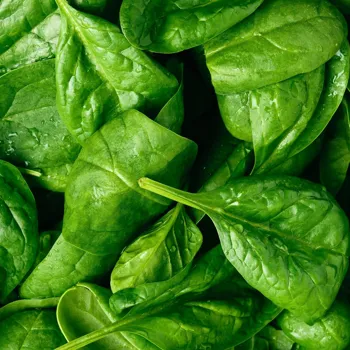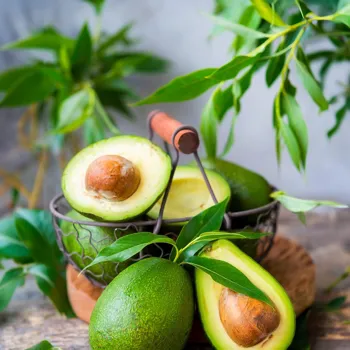Unlock the Power of B Vitamins: Learn Their Vital Role in Your Body & Where to Find Them. Discover more now!
We all know eating healthy is important, but sometimes the details can get a bit confusing. Among
the alphabet soup of vitamins, the B vitamins often get overlooked. But these are crucial for energy, brainpower and overall well-being.
Think of them as the spark plugs for your body – helping convert food into fuel and keeping everything running smoothly. Let's explore why these are vital and where to find them in your daily meals.
Why B Vitamins Matter: More Than Just Energy
The B vitamins aren't just one thing, they are a group of eight essential nutrients that all play unique roles in your body's function. First is B1, or thiamine, which is a key player in metabolism and nerve function.
Next is B2, or riboflavin, which is essential for cell growth and turning food into energy. B3, or niacin, helps with digestion, skin health and nerves. B5, known as pantothenic acid, contributes to hormone production and energy release.
B6, or pyridoxine, is vital for brain development and immune function. Then comes B7, or biotin, which assists in metabolism and keeps hair and nails healthy. B9, or folic acid, is important for cell growth and development.
Lastly, B12, or cobalamin, is crucial for nerve function and red blood cell formation. As you can see, vitamin B is quite necessary.
Each B vitamin contributes something different, but together they form a powerful team.
They help your body use the energy from the food you eat, support healthy nerve function, aid in the creation of red blood cells, and even contribute to healthy skin and hair. Deficiency can show up in various ways, like fatigue, weakness, skin problems, or even nerve damage.
Because they're water-soluble – which could be harmful inside the human body. And also, they are not stored inside the human body, therefore, you ought to get them regularly from your diet. Let's add vegetables to your diet.
7 Vegetarian Foods Packed with B Vitamins: A Delicious Path to Wellness
Fortunately, getting enough B vitamins doesn't require fancy supplements or expensive ingredients. Many common vegetarian foods are excellent sources.
Here are seven to easily incorporate into your daily meals for a boost of B-vitamin goodness. You have to consider if it's vegetarian or not, otherwise it's not good to people.
Leafy Greens
Spinach, kale, and other leafy greens are a powerhouse of nutrients, including folate. Enjoy them in salads, smoothies, or as a side dish. Add a squeeze of lemon to boost iron absorption too! You can make Palak Paneer and it would bring you vitamins, and not just vitamin B though.

Legumes
Beans, lentils, and chickpeas are excellent sources of folate, thiamin and other B vitamins. They are also packed with fiber and protein. Add them to soups, stews, salads, or enjoy them as a main course. They are very helpful.
Nuts and Seeds
Sunflower seeds, almonds, and walnuts provide niacin, folate and other B vitamins. They are also a good source of healthy fats and fiber. Snack on a handful, add them to your cereal or yogurt, or use them in baking.
Whole Grains
Brown rice, oats and quinoa are good sources of thiamine, niacin and other B vitamins. Choose whole-grain options over refined grains for better nutrition and fiber. You should choose healthy grains over unhealthy ones.
Yogurt
Yogurt is a good source of riboflavin and vitamin B12 (especially if fortified). It also contains probiotics, which are beneficial for gut health. Choose plain or low-sugar varieties. You can add fruits to it too.
Mushrooms
Mushrooms, especially shiitake and portobello, contain niacin, pantothenic acid and other B vitamins. Add them to stir-fries and omelets. Also, they have a good source of vitamin D too.

Avocado
A creamy, versatile fruit that provides pantothenic acid, folate and other B vitamins. Enjoy it on toast, in salads, or as guacamole. Not that tasty, but is healthy.

Simple Ways to Get More B Vitamins into Your Plate
It isn't enough to know which foods contain B vitamins. You have to find smart ways to include them regularly into your diet. Start by swapping refined grains for whole grains when choosing bread, pasta or rice. It can give you more of other vitamins, not just B.
Add a handful of nuts and seeds to your morning oatmeal or a salad. Blend leafy greens into your favourite fruit smoothie for a nutrient boost. Choose yogurt as a healthy snack and make sure to check the label for vitamin B12 content.
Legumes are super versatile – think lentil soup, chana masala or a simple bean salad. Incorporate mushrooms into stir-fries, vegetable curries, or even as a topping for your dosa. And don't forget the avocado! The nutrients are sure to be helpful.
Try smashing it on whole-wheat toast or adding cubed avocado to a salad for healthy fats and vitamins. Also, make sure to not consume sugary drinks. The B vitamin can degrade because of the chemical properties from the drink.
Expert Tip: Understanding Fortified Foods
Some foods, like breakfast cereals and non-dairy milks, are often fortified with B vitamins. This means that vitamins have been added during processing.
While fortified foods can be a helpful way to boost your intake, they shouldn't be your only source of B vitamins. Whole, unprocessed foods will always offer a wider range of nutrients and other health benefits. Be sure to read the label before purchasing.
Not every food is healthy, so be careful with what you buy.
The Takeaway: A Balanced Diet is Your Best Bet
Getting enough B vitamins is essential for your energy levels, brain function, and overall well being.
While supplements are available, focusing on including a variety of B vitamin-rich foods in your diet is the best approach. Legumes and dark leafy green vegetables are good examples. These are sure to be helpful.
By making a few simple changes to your eating habits, you can easily ensure you're getting all the B vitamins you need to thrive. Small changes to your diet could amount to much greater vitamin intakes.
AI Generated Content. Glance/InMobi shall have no liability for the content












